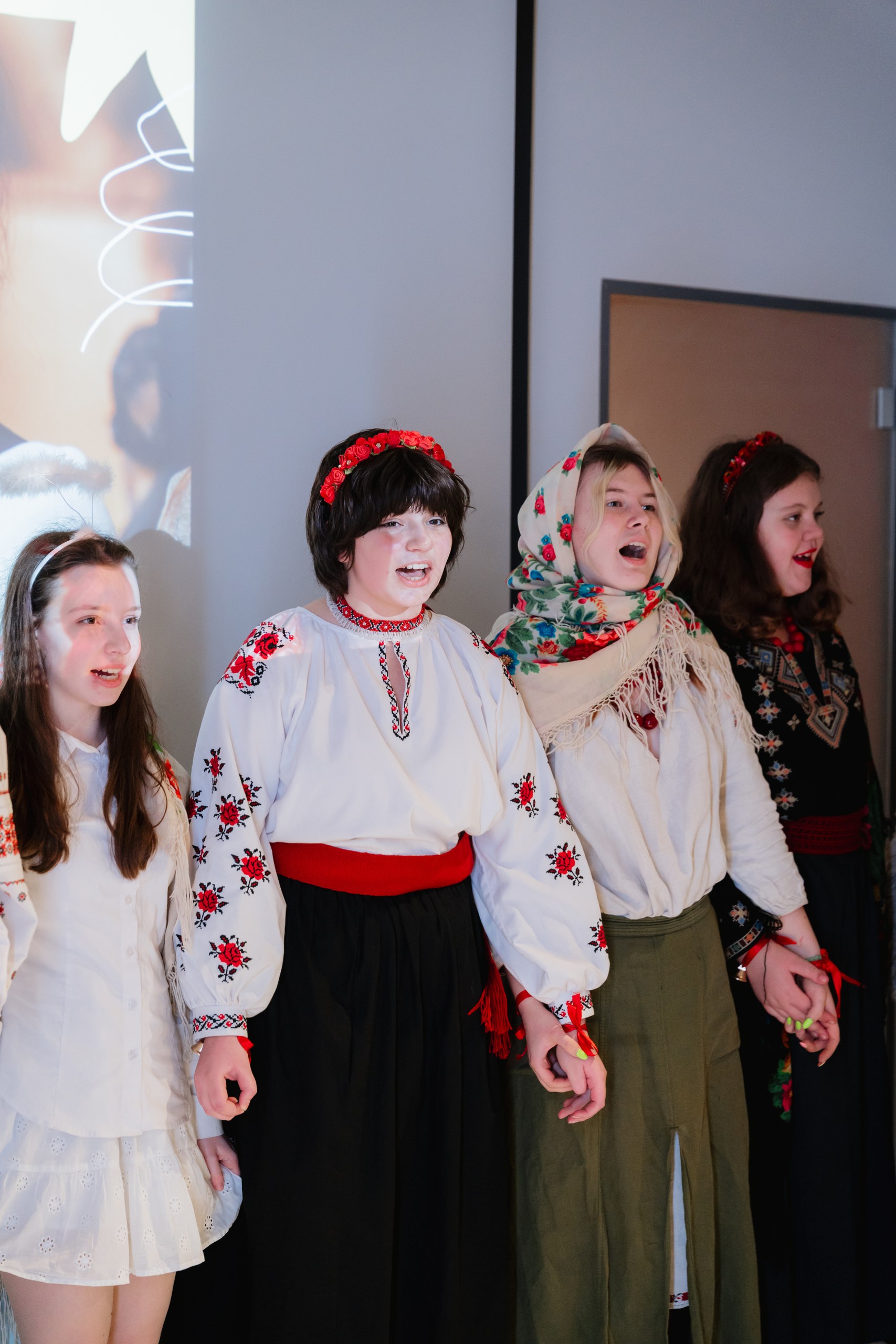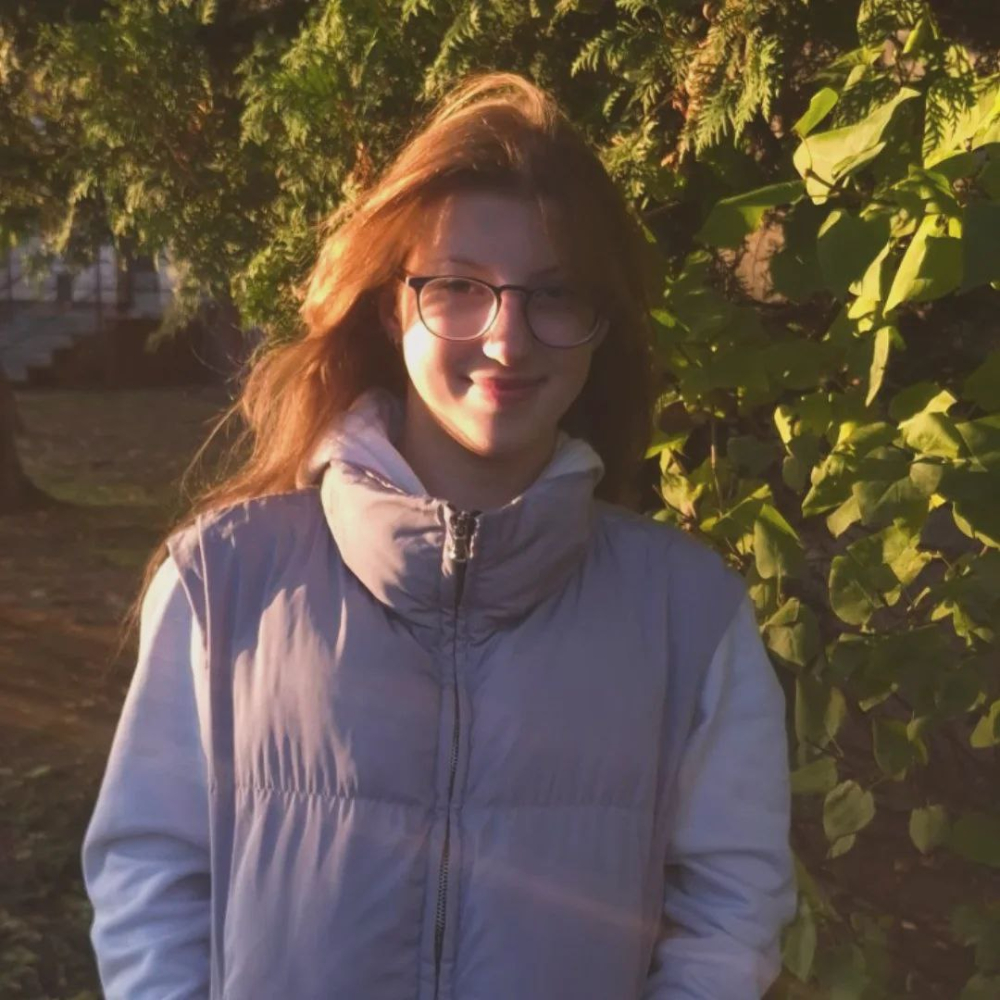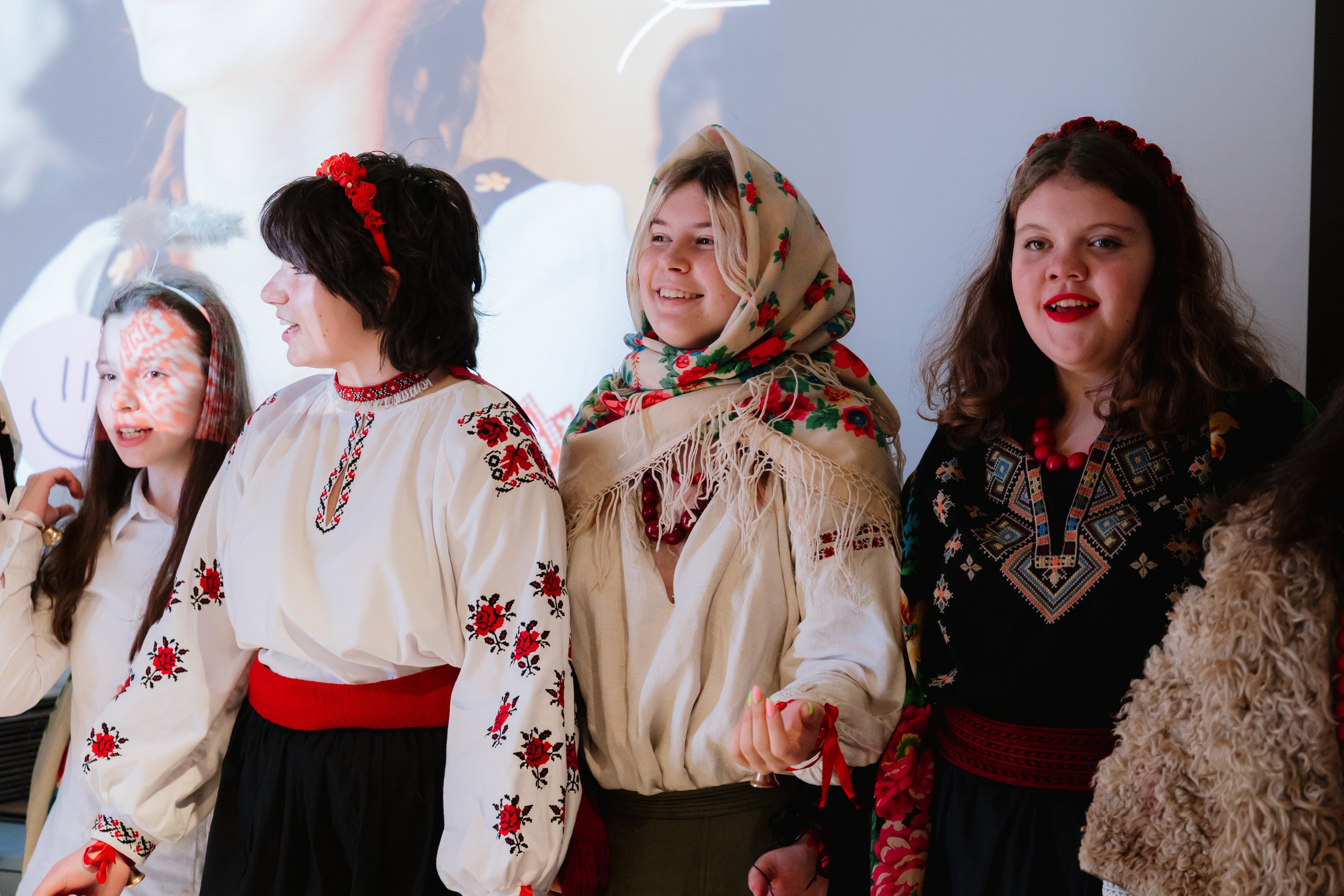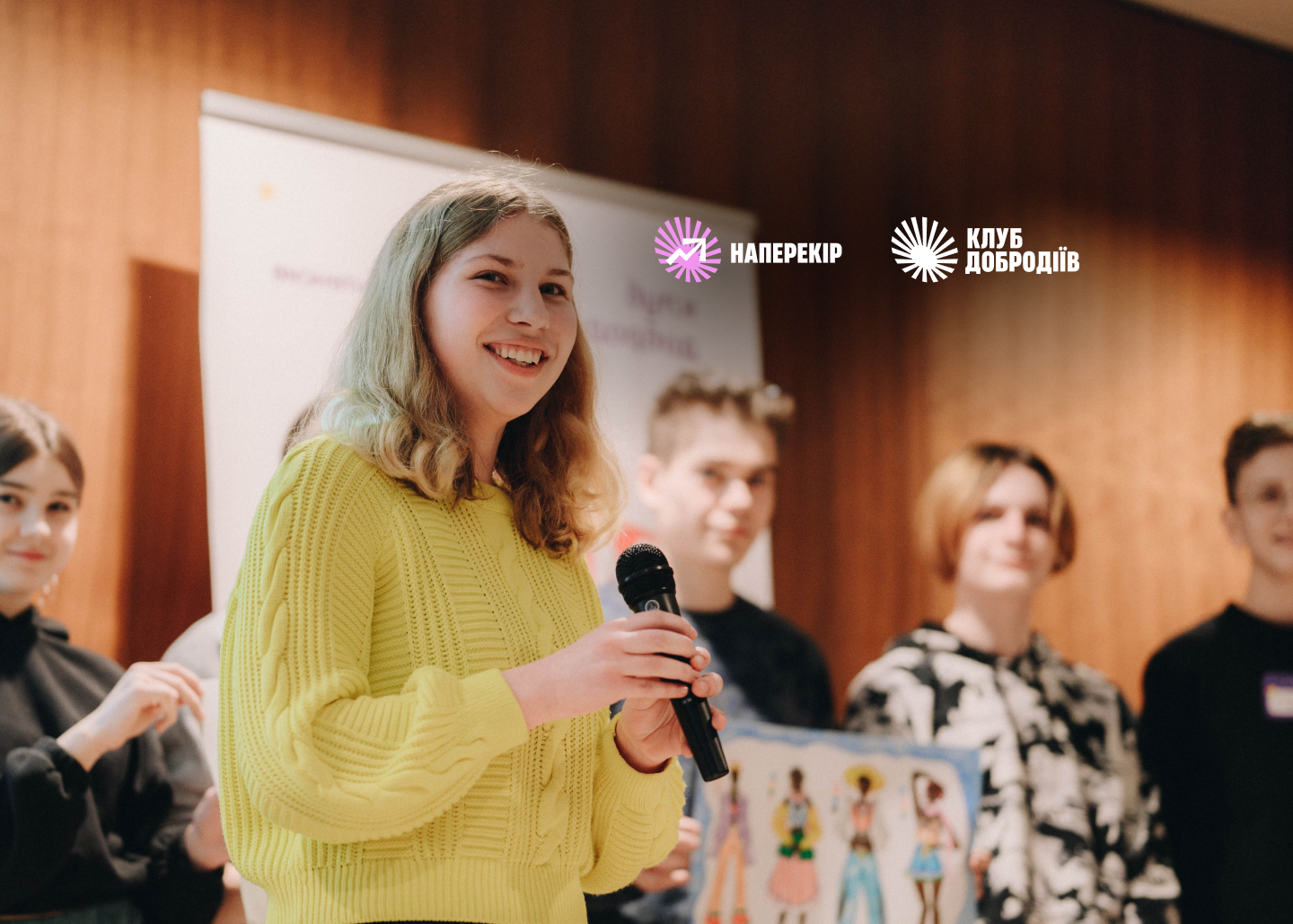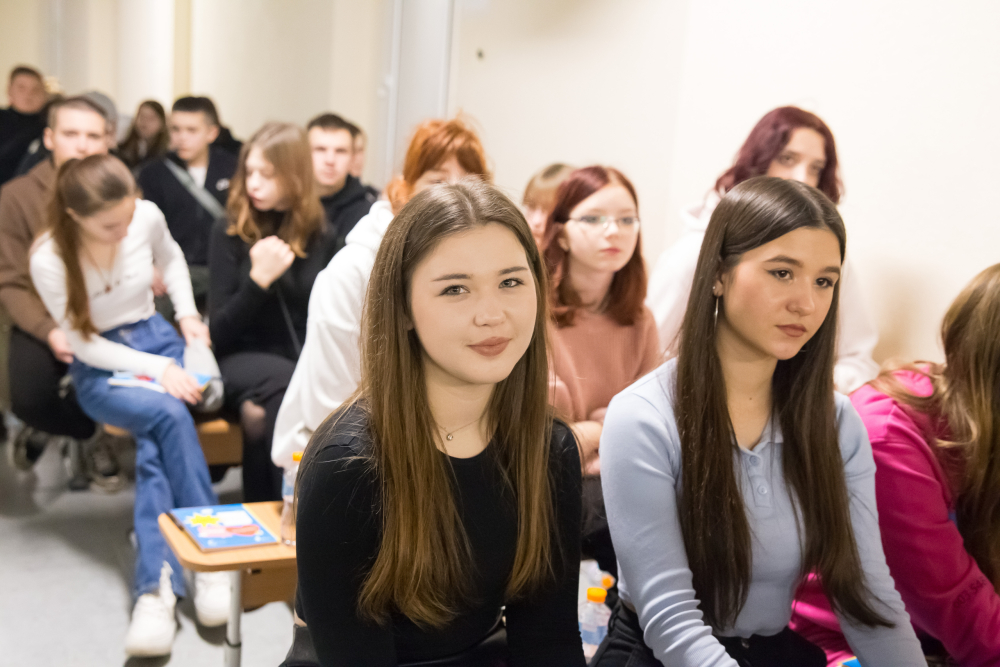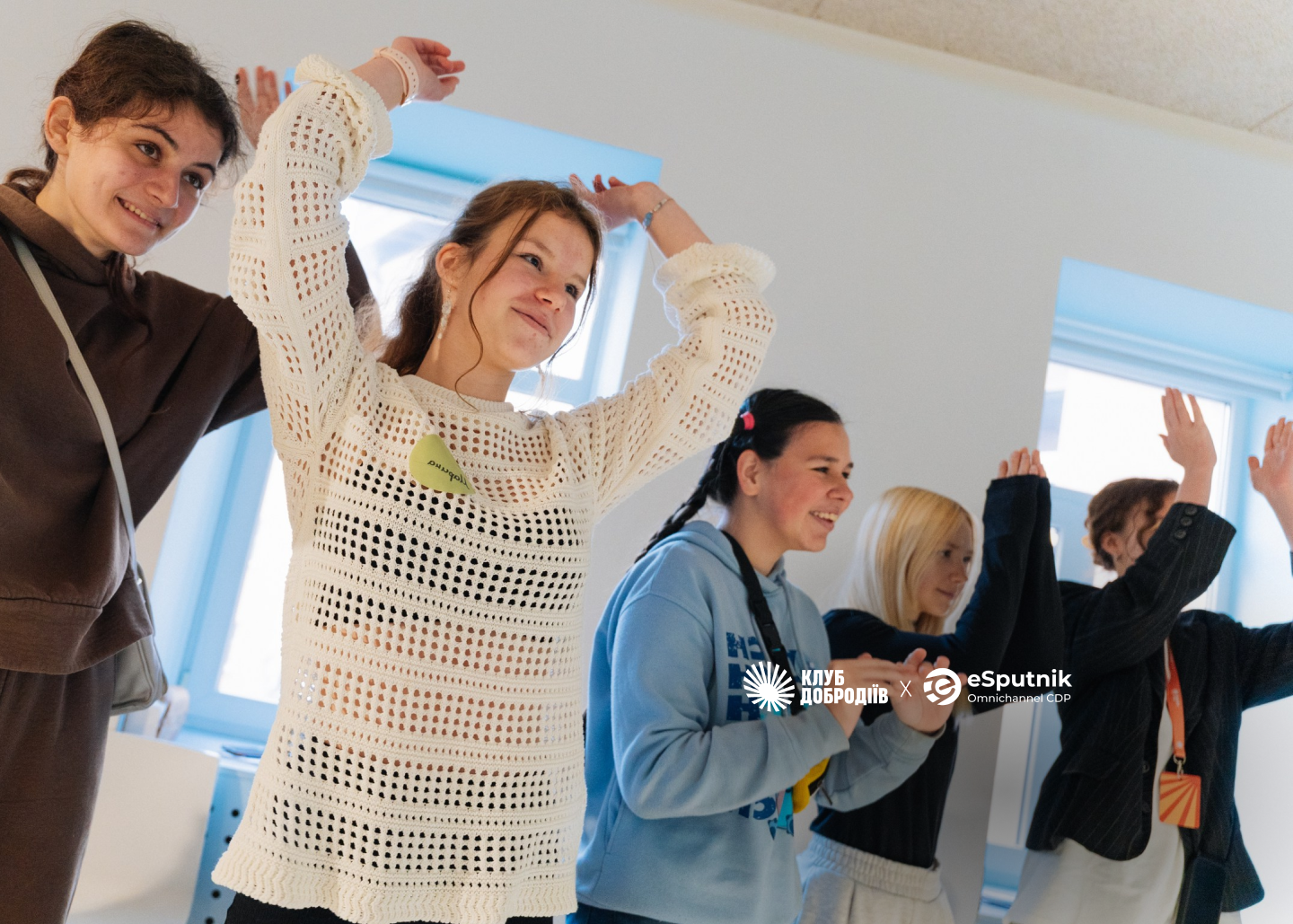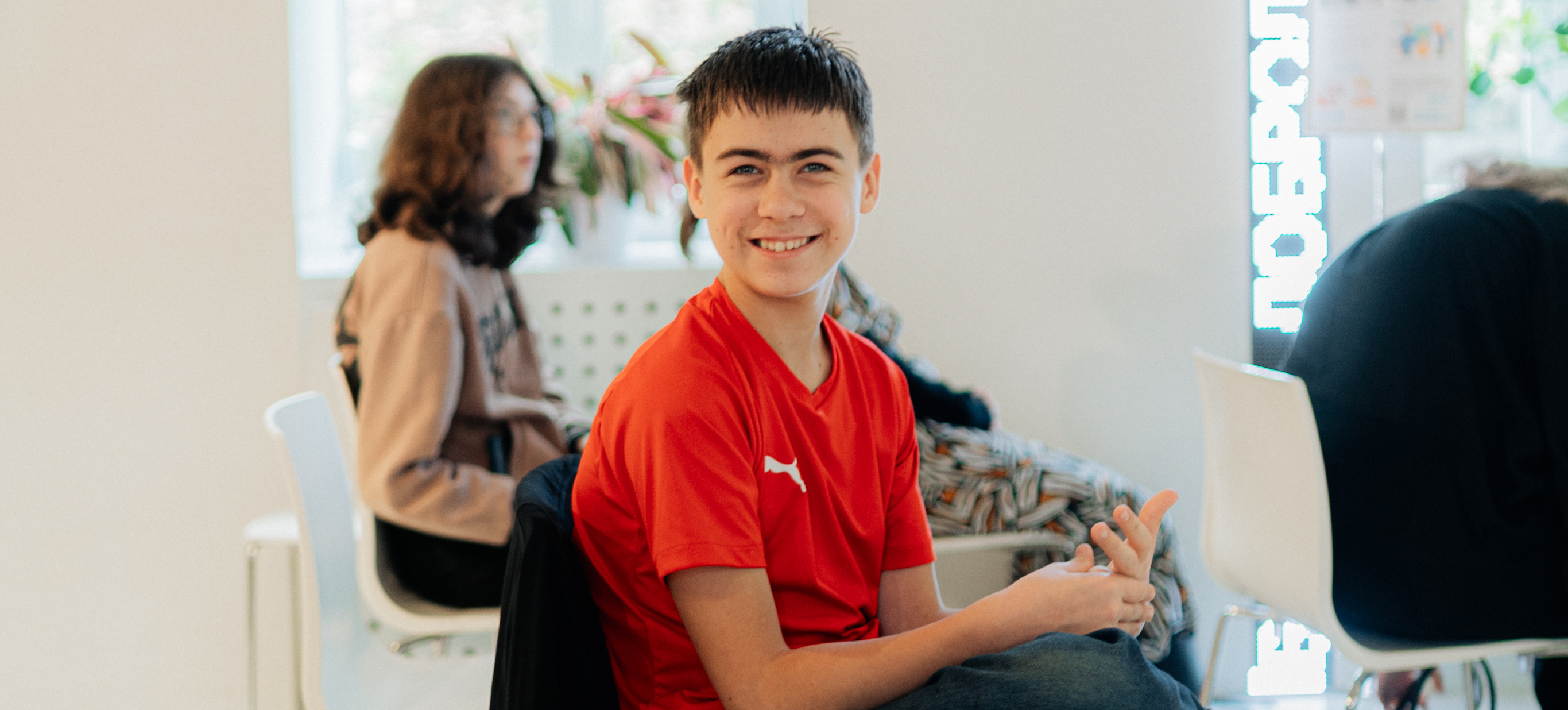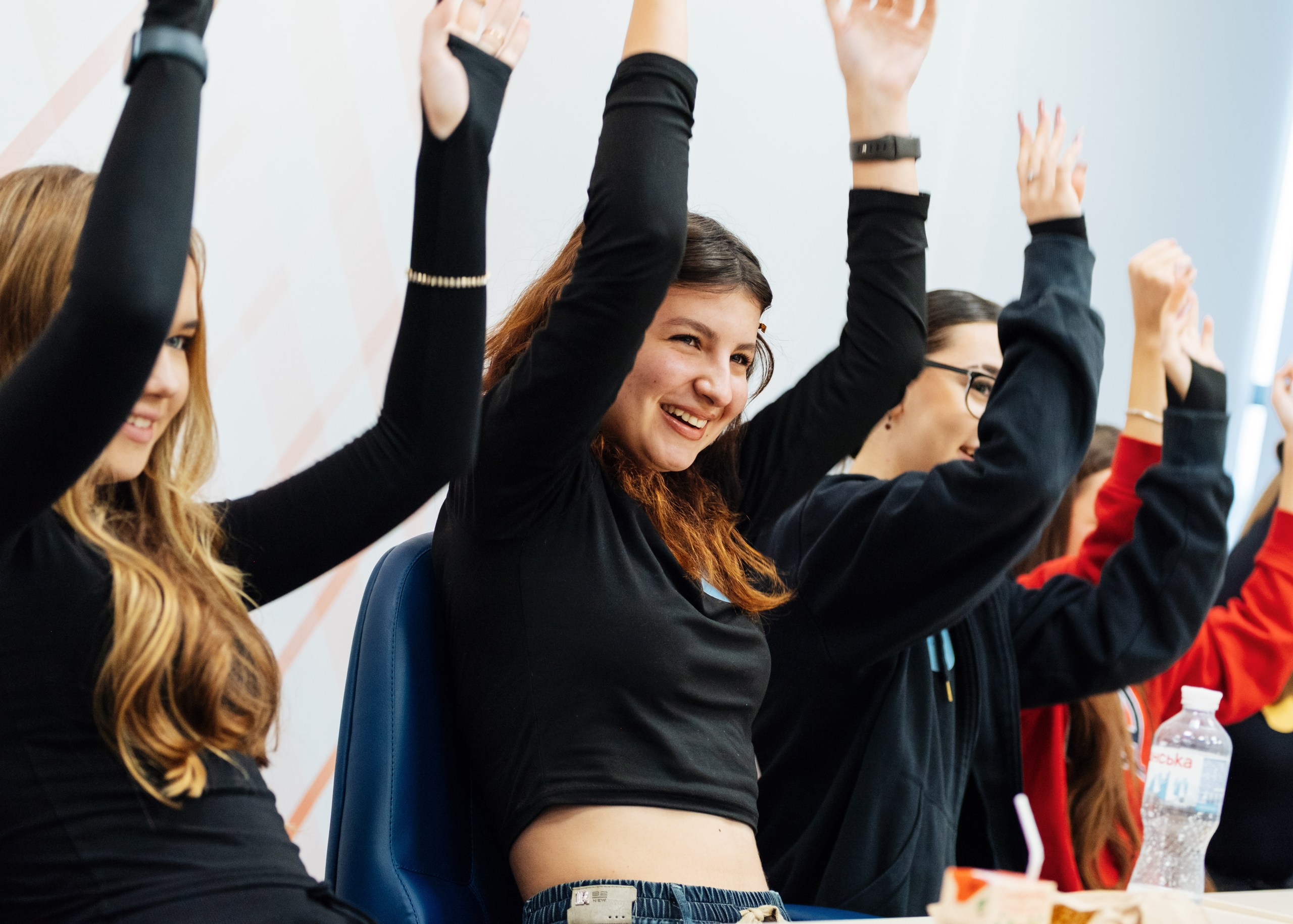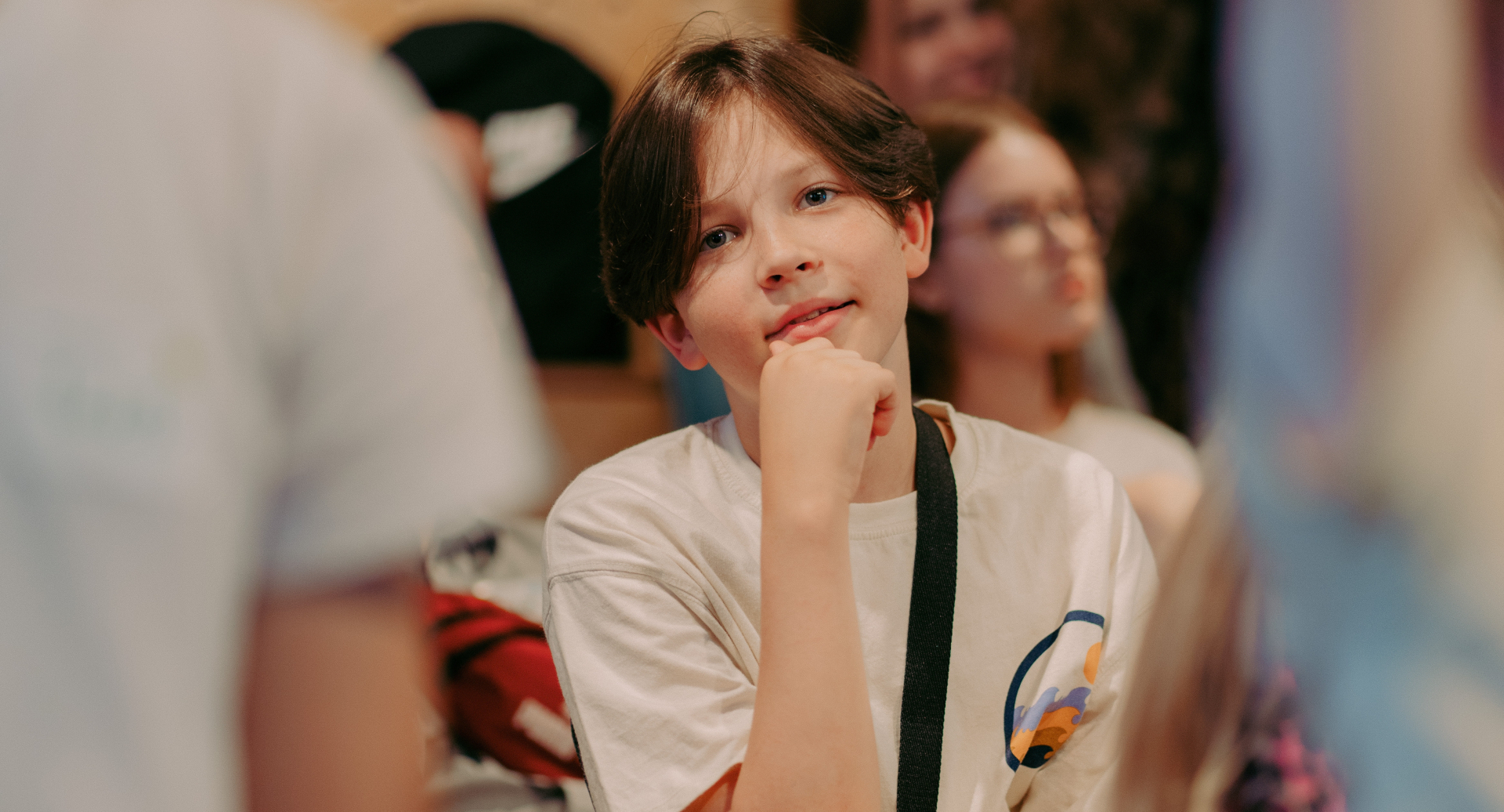
Дякуємо за ваш внесок!
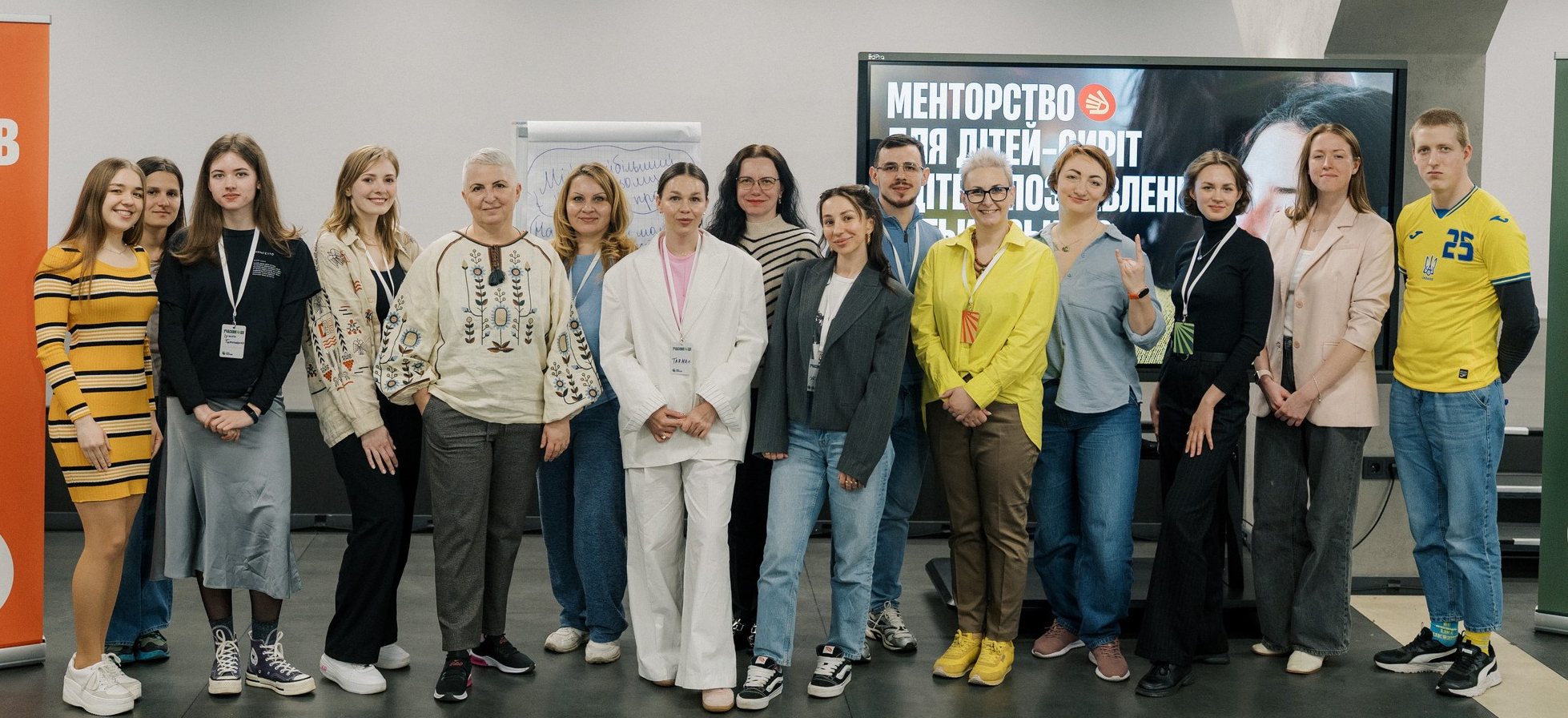
How Dobrodiy Club’s project gave teenagers a chance for an alternative future
In the fall of 2024, Dobrodiy Club, with the support of UNICEF Ukraine, launched a pilot project called “Mentorship.” Its goal was to provide 100 teenagers with experience of orphanhood with the support of safe, responsible adults — people who could help them build an alternative life path and take the first steps toward realizing it. The pilot project made it possible to test effective approaches and tools that can later be scaled and integrated into broader systems of support for children with care experience.
At Dobrodiy Club, we don’t just create innovative solutions — we combine practice and analytics, test hypotheses, and collect data that can lay the groundwork for systemic change. The Mentorship pilot proved how profoundly one caring adult can transform a teenager’s life — and also revealed how much mentorship in Ukraine needs broader understanding and support.
To complement the practical outcomes with broader context, at the end of the pilot we conducted a nationwide study titled “Mentorship in Ukraine: Biases, Challenges, and Needs.” The research uncovered stereotypes and barriers that slow down the development of mentorship, assessed Ukrainians’ readiness to provide such support, and captured the expectations of teenagers themselves.
Reflecting on the pilot experience, this material highlights key insights, results, and learnings that can form the basis for scaling mentorship as a systemic tool for supporting youth.
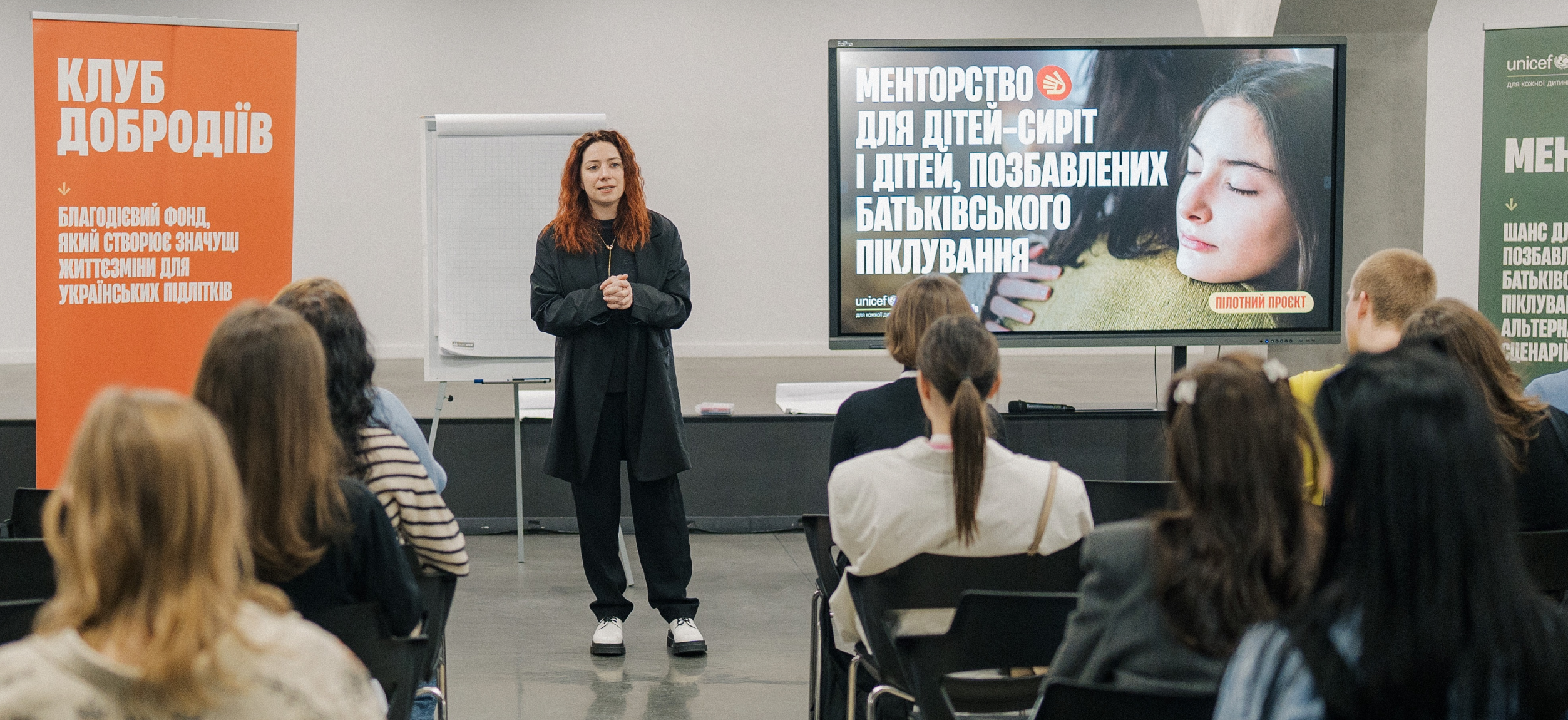
Mentorship in Action: What Makes the Program Unique
The Mentorship pilot lasted six months, during which 100 mentor–mentee pairs were formed across Kyiv, Lutsk, and Mukachevo communities.
70 pairs completed the full program — from the first meeting to the final reflection.
This experience confirmed: mentorship can be a powerful tool for supporting teens with experience of orphanhood.
We identified five key components that ensured the program’s success and lasting impact:
1. Child-Centered Approach
At the core of the program is the teenager and their individuality. Work began by understanding each participant’s personality, needs, and potential. Together with psychologists, we developed personal profiles describing character traits, interests, strengths, and recommendations for interaction.
2. Effective Matching
Adults who wanted to become mentors completed applications and in-depth interviews to create their own profiles. When forming pairs, we considered shared values, motivation, and personality compatibility, ensuring matches that would foster genuine trust and connection.
3. Structured Methodology
Dobrodiy Club developed a step-by-step methodology that guided mentor–mentee pairs through:
- Building trust
- Exploring strengths
- Setting goals
- Developing communication skills
- Creating new life strategies
4. Working with Learned Helplessness
Many participants had experienced prolonged trauma or neglect, leading to a state of learned helplessness — the belief that “I can’t. I won’t. I don’t want to.” We created a safe environment where teenagers could speak openly, be heard, and have their emotions validated. Even if the past cannot be changed, it is possible to provide tools and strategies for a better future.
5. The Full Mentorship Cycle
The program covered every stage — from recruitment to completion:
- Selecting mentors and mentees
- Training adult participants
- Pair formation and guided interaction
- Ongoing supervision and support
- Evaluation of effectiveness
- Gentle, structured closure of relationships
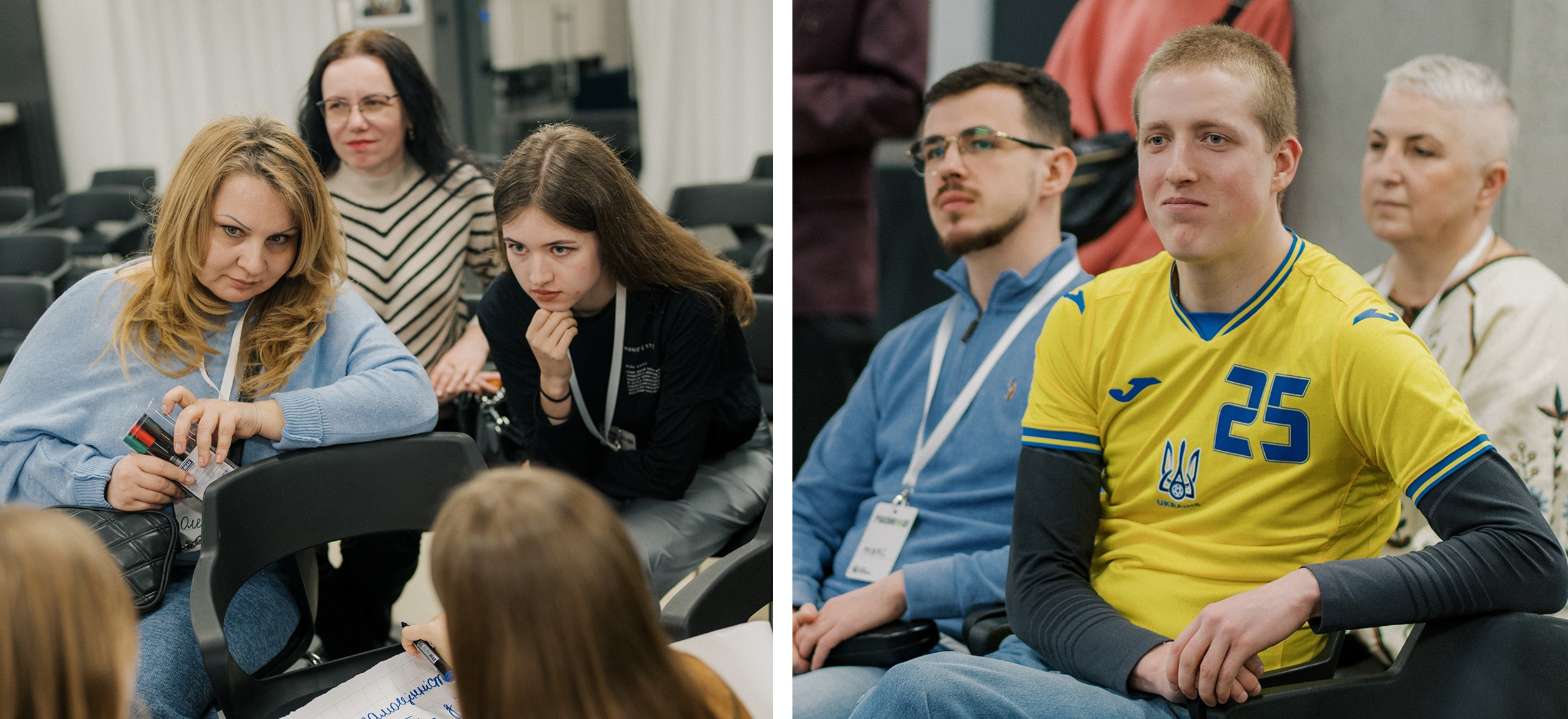
Results: How Mentorship Helped Teens Take a Step Toward Themselves
At the start, we asked teens what they expected from the program:
- 49% wanted to learn more about themselves
- 27% hoped to improve communication skills
- 23% wanted to become more confident
Many also mentioned wanting to expand their social circle, gain experience, and find a place where they could be themselves without fear of judgment.
For most, mentorship became not just a new experience but a life-changing moment — a turning point that helped them see their strengths and believe in their potential for the first time.
Emotional Growth
At the beginning, only 33% of participants could recognize and name their emotions; by the end, this number rose to 64.6%.
The number of those who understood what stress is and how to handle it increased by 44.6%. Common stress responses included:
- 23% — anxiety or panic
- 44% — trying to act, though not always effectively
- 13% — knowing specific strategies to manage stress
“A stressful situation is when emotions take over and turn into fear.”
“Stress is the negativity in my soul, and I try to fight it.”
Discovering Interests and Passions
At the start, most teens described their interests vaguely — friends, sports, music, social media.
By the end, they could explain why these things mattered, linking them to dreams, values, or career goals.
“I learned what I actually like and what I don’t.”
“Now I know I have many interests — I’m a multifaceted person.”
Setting and Achieving Goals
Initially, 6.1% of participants said they had no goals at all. By the end, none gave that answer — and 64% said they now had clear plans for the future. Over 50% identified specific career fields of interest, and 63% began writing down concrete steps toward their goals.
“I want a simple life with space for creativity and meaningful work.”
“I want to be open-hearted, have a job I enjoy and that meets my needs.”
These changes show that even short-term but consistent support can become a point of growth. For many, this was their first experience of a stable, trusting relationship with an adult — and a crucial step toward believing in themselves again.
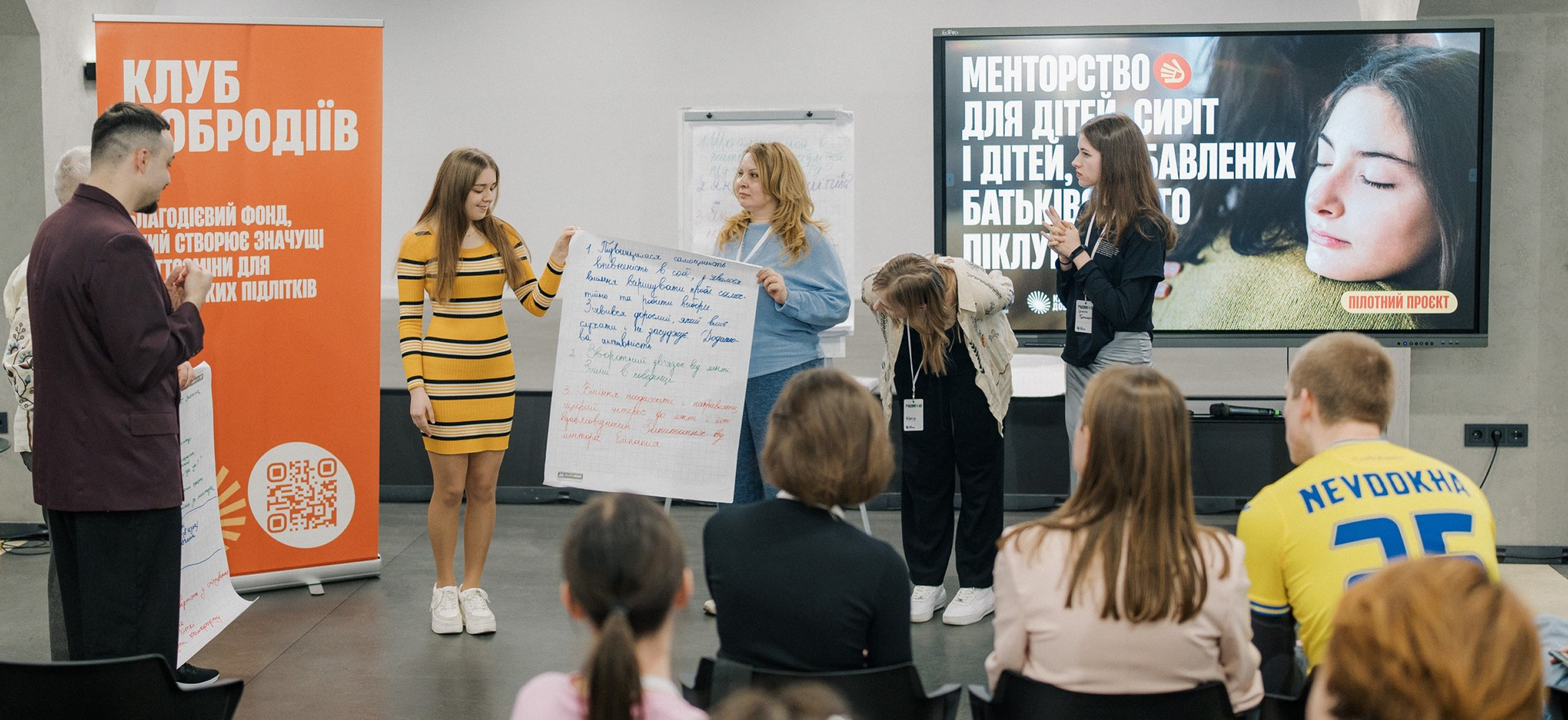
A Transformative Experience for Adults, Too
The program changed mentors as well. Many described it as a journey of rediscovering empathy, values, and the power one person can have in another’s life.
Trust wasn’t built overnight — mentors faced challenges like emotional withdrawal or fear of connection. But patience paid off: by the end, 81% said they planned to stay in touch with their mentees.
“I was testing you at first — to see if you’d disappear like others,” one mentee admitted.
“I love my mentor ❤️ she’s my friend now!”
“A wonderful girl appeared in my life — I’m proud to see her grow.”
Formal project closure didn’t mean relationships had to end — participants could choose between continued communication, transitioning into formal state mentorship, or respectfully closing their interaction.
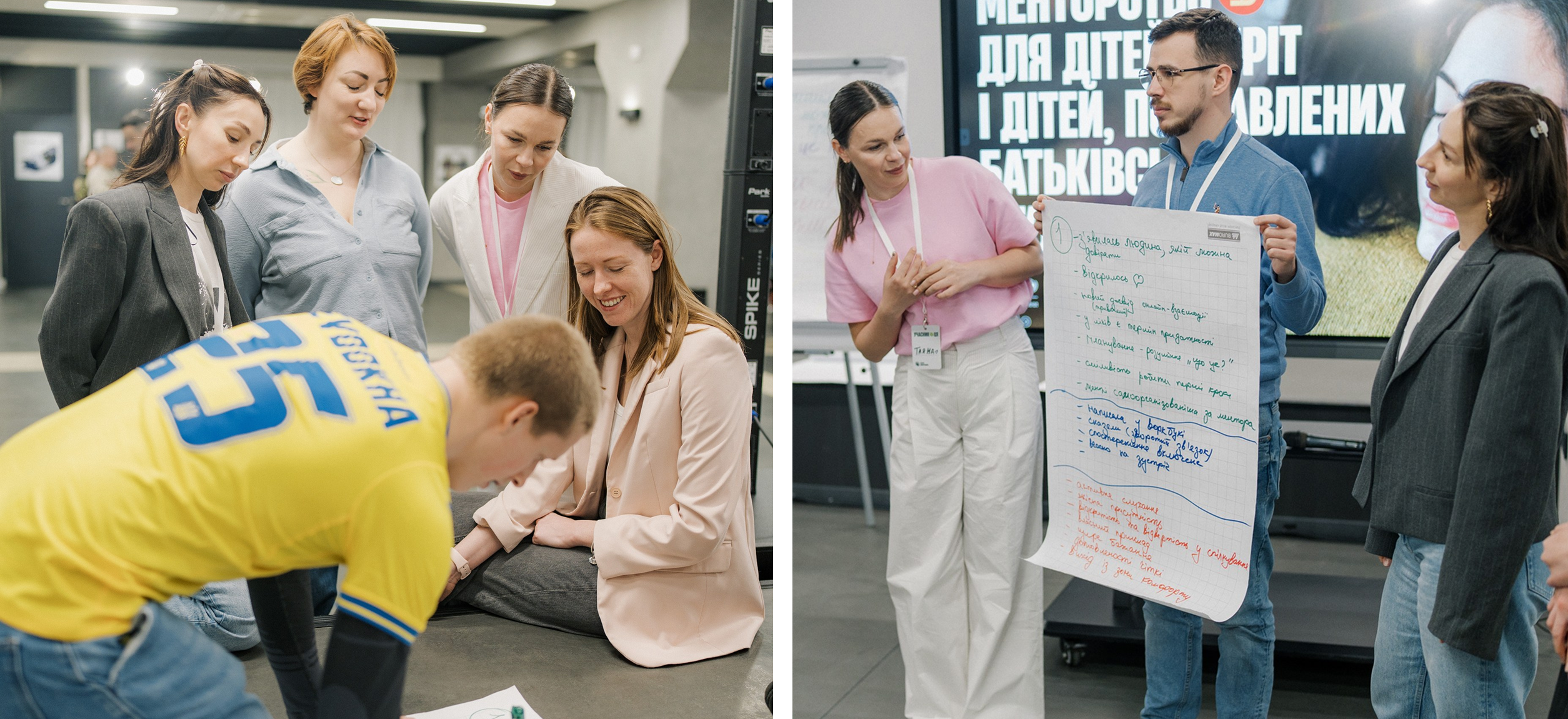
Together, We Made It Possible
Every teenager deserves support, safety, and a chance to build their future. That’s why Dobrodiy Club continues developing long-term mentorship programs for youth with experience of orphanhood.
This project was made possible thanks to UNICEF Ukraine, EPAM Ukraine, and the Coordination Center for Family Care and Upbringing, as well as local social service representatives whose engagement made every step smoother.
We are deeply grateful to everyone who believed in the power of mentorship:
- To the teenagers — for trust, openness, and courage
- To the mentors — for stability, empathy, and humanity
- To the partners — for believing in our approach and helping create opportunities where they are needed most.



